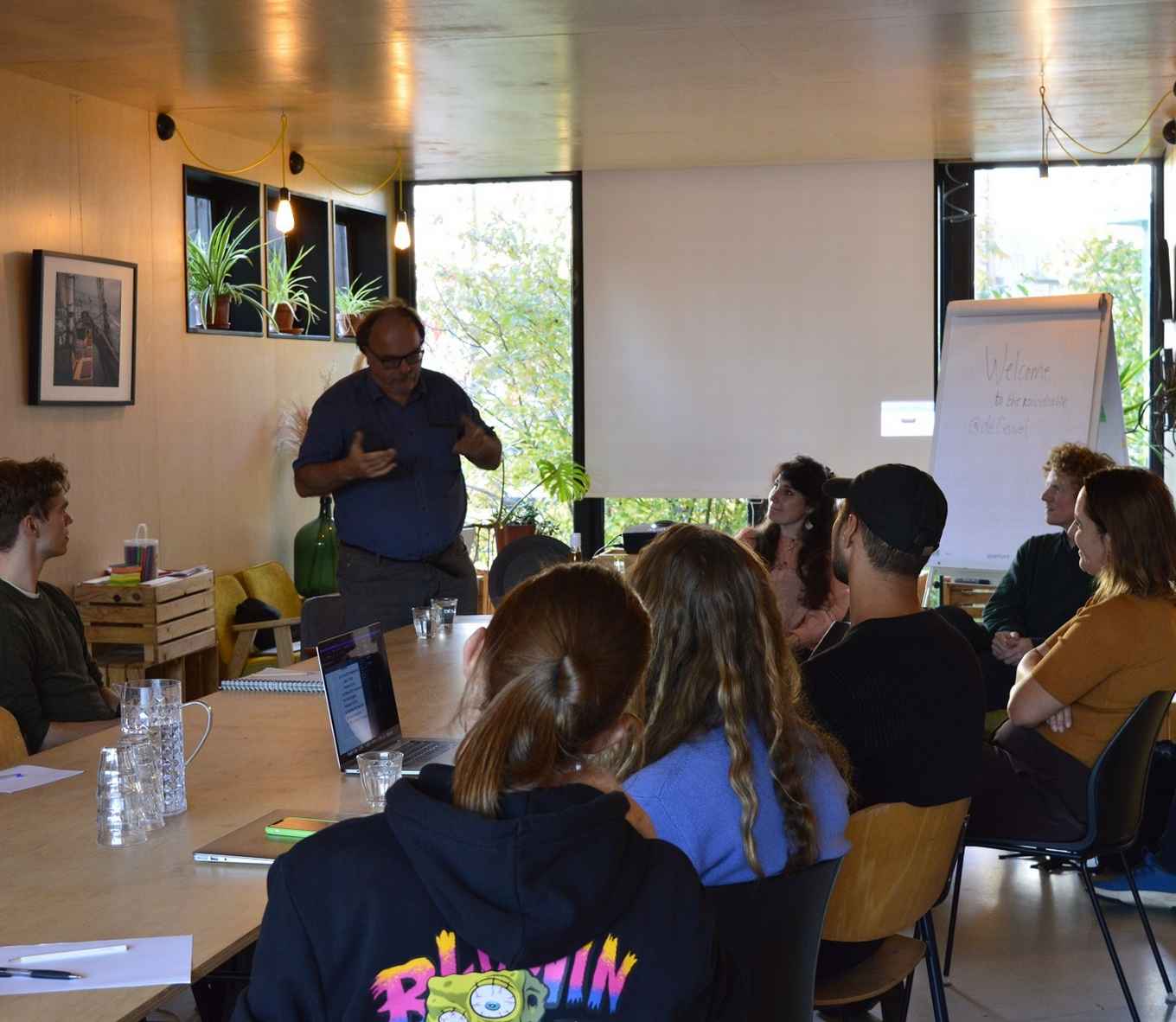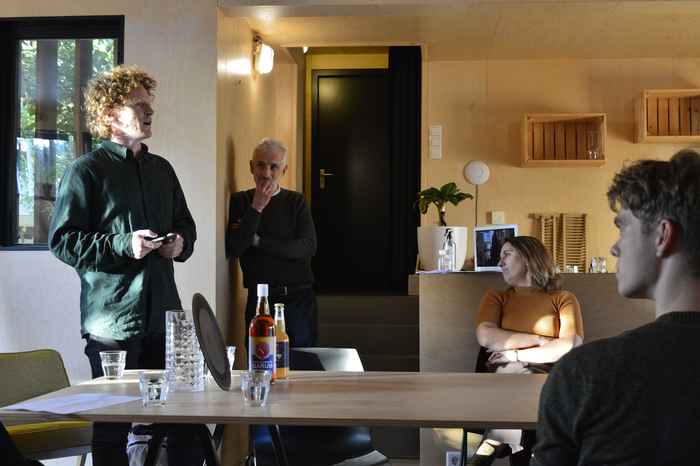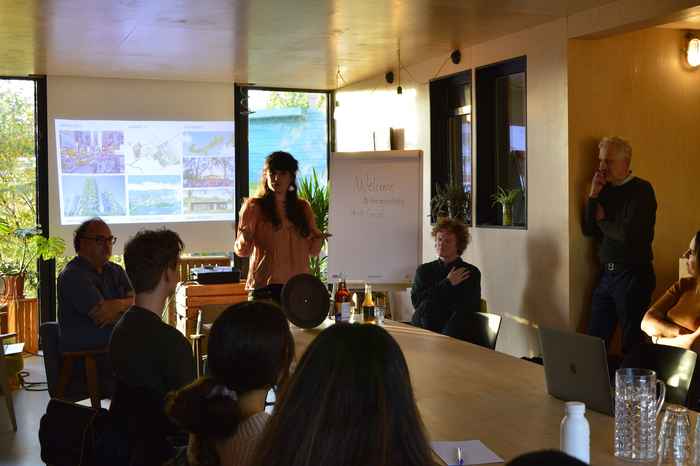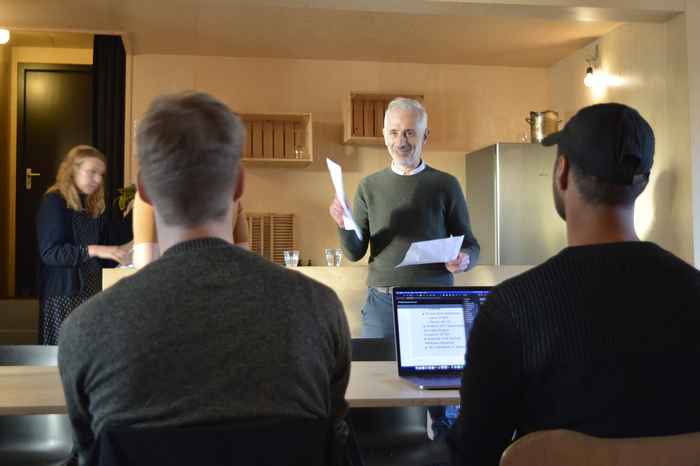Special guests at round table The Next Great/Small Transformation
27 October 2021

The location for the meeting was appropriately chosen. De Ceuvel is a sustainable breeding ground for creative and social entrepreneurs on a former shipyard in Amsterdam North. The place has creative workplaces, a cultural centre around sustainability, a café-restaurant and even a floating hotel. In addition, there are also spaces available for workshops or inspiration sessions such as this one for the students. Nice detail: de Ceuvel was founded in 2012 by alumni of Future Planet Studies! The IIS bachelor that revolves around sustainability.
Experts by experience
The guests of this round table at de Ceuvel all have experience in researching and initiating transitions in their own way. Professor Grin is a policy expert in system innovation and sustainability. Dagmar Slagmolen brings creative input as she is, among other things, director, actress and founder of music theatre company Via Berlin. The third guest, Boj van den Berg, is a pioneering spatial planner and, among other things, founder of the New Grounds landscape, where nature comes first when developing locations.
Creative approach
After a short pitch about how the guests would interpret and define ‘transitions’, the students were given the opportunity for asking questions. Themes being discussed included alternatives for meat consumption, the 'fast food industry', the scarcity on the housing market, sustainability, but also how you A.I. could be used for the improvement of people's well-being. These are all big, complex themes that require a creative approach and 'transition thinking'.
Food for thought
The session was a success and Boj said he was very curious to see where the groups would be in a few weeks. There was also food for thought. Dagmar urged the students to think carefully about 'impact', what has 'value' and how to measure this? When is something a success? If you help one person very well, or a larger group just a little bit? John managed to close the session nicely with the following tip: keep asking why things are the way they are. Keep asking questions and initiate the discussion. That way you interrogate the standard way of thinking and create possibilities.
If you have any questions, please contact one of the teachers of The Next Great/Small Transformation, Katusha Sol.


